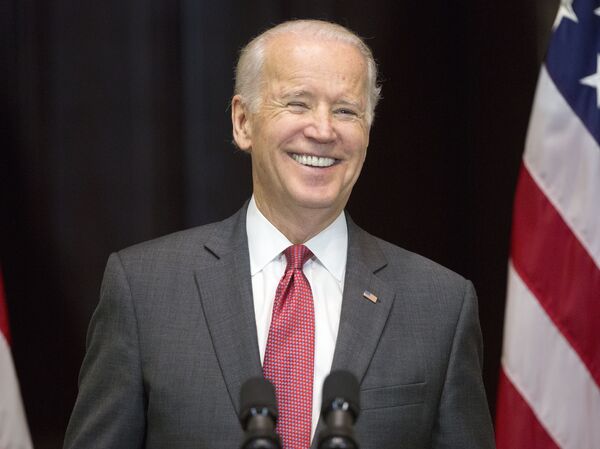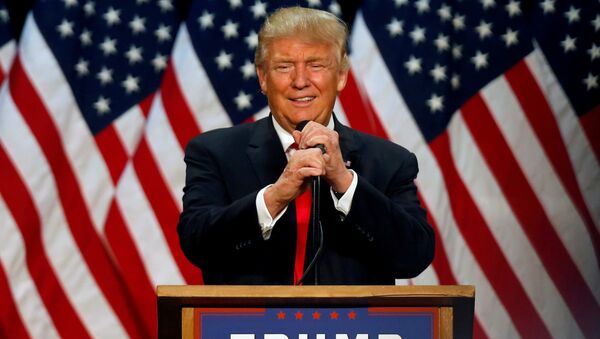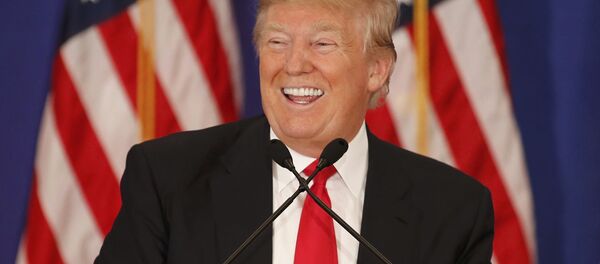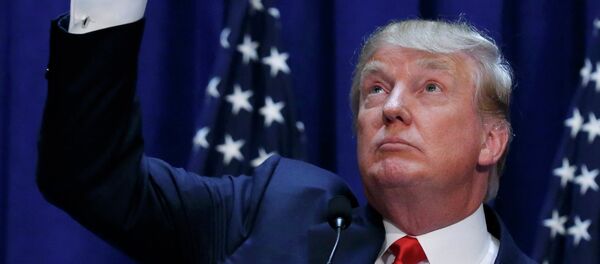The US needs to rethink the Article 5 obligation and its membership in NATO, which has turned into a dangerous anachronism, Ted Galen Carpenter of the Cato Institute writes.
In his article for The National Interest Carpenter comments on US Vice President Joe Biden's recent advice given to Baltic leaders not to take seriously comments by Republican presidential nominee Donald Trump.
On July 20 The New York Times quoted Trump who expressed doubts regarding the US' commitment to automatically defend its NATO allies according to Article 5, stressing that Washington would first look whether or not they have fulfilled their obligations to the US.
"If they fulfill their obligations to us, the answer is yes," Trump said answering the question whether the US would protect the Baltic States in the event of a Russian "attack."
Apparently, to calm the NATO allies in the Baltic region US Vice President Joseph Biden said during his latest visit to Latvia: "I want to make it absolutely clear to all the people in Baltic states: we have pledged our sacred honor, the United States of America… to the NATO treaty and Article Five."
"The fact that you occasionally hear something from a presidential candidate in the other party, it's… nothing that should be taken seriously," Biden added, as cited by Reuters.

However, Carpenter believes that Biden has just added insult to injury.
"It is hard to tell which is the more offensive feature of Biden's comments-the overall tone of smug arrogance or the implicit blasé attitude about the risks his own country incurs to protect the tiny Baltic republics," the US academic writes.
But that's half the trouble. While speaking about the US commitment to rush to defend its NATO allies should they be attacked, Biden has purportedly forgotten that it is Congress, not the President, who decides whether or not to use armed forces.
"Republican presidential nominee Donald Trump is more right than he knows about our NATO pledge to defend member nations from aggression," Constitutional lawyer Bruce Fein stresses in his opinion piece for the Huffington Post, adding that Trump's opponents "on that score are ill-informed."
Although Article 5 says that the Alliance's members agree to assist their counterparts in the event of attack, "companion Article 11 makes clear, however, that decisions to use armed force shall be made in accord with the respective constitutional processes of the member nations," Fein narrates.
He underscores that "for the US that means Congress, not the President acting unilaterally, decides whether to authorize use of the armed forces to defend NATO members from aggression."
So far, a decision to provide its ally with the military support cannot be made "automatically" in the US, without weighing the pros and cons.
He recalled that NATO was created to counterbalance the USSR in the first place. However, 25 years ago the Soviet Union ceased to exist.
"It's fair to ask why NATO, in the absence of a Soviet or Soviet-level threat, or any real public debate, has been expanding beyond its historical mandate," Tayler highlighted.
The American journalist posed the question what the US would do if Russia indeed attacked the Baltics.
"Would the United States risk a nuclear holocaust and go to war with Russia over Tallinn or Riga? Most Americans would likely respond by asking where those cities are, and why they should die for them," Tayler emphasized.
Carpenter echoes Tayler and insists that the US should reconsider its NATO commitments.
"Responsible scholars have criticized that alliance as an increasingly dangerous anachronism for years," he notes, adding that Trump has merely turned the spotlight on this burning issue.
"Joe Biden and the other defenders of the 'bipartisan consensus' may assure foreign audiences all they wish that everything is fine, but the winds of change are blowing," Carpenter concludes.




